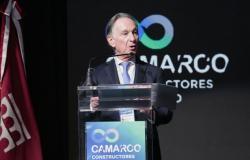In a devastating letter, the head of the Civil and Commercial Court No. 9 of San Isidro, Gabriela Paladín, in charge of the bankruptcy proceedings of the fintech, property of Alejandro Muszak, gave intervention to the prosecution, for the possible commission of crimes of public action.
Meanwhile, Muszak continues to be detained in Magdalena, despite the fact that a controversial court ruling, signed by Judge Luis Cayuela, recently granted the release of both him and his accomplices. His lawyers are looking for a way to cover the amount of the bail, set at 980 million pesos, without self-incrimination.
Those scammed closely follow how Muszak resolves this procedure, which could give a clue to the destination of their money. The defense’s last move was to offer one of the two apartments that the financier owns in Miami.
Wenance is the fintech that lent money online to unbanked sectors of the population. Since 2016, she has been sued successive times for usury and abusive charges to borrowers. In July 2023 it stopped fulfilling its obligations to investors, who number around 8 thousand, distributed between Argentina, Uruguay and Spain.
The criminal investigation confirmed that Muszak carried out illegal financial intermediation, without a license from the Central Bank (BCRA). His operation consisted of issuing debt securities for these loans and placing them, thus outsourcing the risk. He sold the same loan up to six times, which constitutes typical Ponzi scheme behavior, where new investors pay the profits of the previous ones.
History of a contest
Paladín is the first instance judge who, shortly after the company went into default, rejected the bankruptcy request presented by Muszak’s lawyers. The decision was based on two reasons: that the operations had been carried out in the city of Buenos Aires, despite the firm’s recent change of address, and that despite denying it, it was a financial entity, so it was appropriate the actions of the BCRA.
But Muszak’s lawyers appealed and Chamber 2 of the Court of Appeals, chaired by Dr. Fernanda Nuevo, overturned Paladín’s decision. Now, after eight months of proceedings, in a 21-page document, Paladín considers that no less than eight summons, made between last November and May, had not been fulfilled by Wenance, he finally resolves to remove the company from the administration of the trust assets and, Finally, send a copy of the file to the Attorney General’s Office of San Isidro, for possible commission of a public action crime.
Paladín’s main argument coincides with the existing evidence in the case of Court 43 of CABA: that it was a fraudulent bankruptcy. “Here it should be noted that it is the same Law that establishes, as a requirement for the existence of the bankruptcy, the state of cessation of payments, which must be proven, not presumed, through the information required in Art. 11. If the information had been distorted or faked, the objective requirement would not have been met, but in addition, defrauding investors would have eventually been committed, in addition to procedural fraud with the objective of taking advantage of creditors and enriching oneself without cause at their expense.”
Furthermore, the judge maintains in her writing, with implacable logic, that this situation cannot be proven if the books and accounting statements are not presented: “It is striking that they refuse, with childish excuses, to explain the composition of the balance of one of their most important Liabilities quantitatively, when they could simply do so based on the registrations in their General Ledger, those in their Daily Book and the extracts from the collection receiving accounts and from their Treasury, if they collected themselves”.
The role of Fiduciary Promoter
For Paladín, the role of the Abancens brothers’ company is at least doubtful. One of the central requirements of the financial trust figure is the strict separation of roles between trustor and trustee, where the former operates as overseer or controller of the latter. However, in the agreement between Wenance and Promotora Fiduciaria, Wenance itself is designated as collection and administration agent.
“If the credit originator and trustor is Wenance, and the true administrator “Collection and Administration Agent” with “broad powers to carry out all acts related to the ordinary administration of the Credits and their collection” is also Wenance: a) What does Promotora Fiduciaria do/do? They never leave – except on paper – the decision-making sphere of Wenance,” Paladin asks.
“Consequently, if the capture of investors was due to a ruse or deception regarding the existence of a trust that would protect the investments, but that was not real due to the patrimonial confusion derived from a legal act (power of attorney) carried out expressly to maintain the control and disposition of the trust assets, noting the probable existence of crimes of public action and the obligation that I have as a public official, send copies of this resolution, documentation in the case and allow access to the proceedings to the Prosecutor’s Office. General of San Isidro, through style office”, he concludes.






